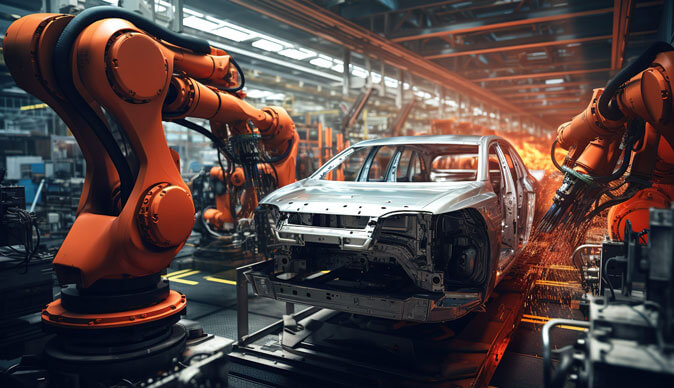Seals and gaskets play crucial roles in the automotive industry, providing numerous benefits and serving various purposes to ensure the efficient and safe operation of vehicles.
Here are some of the key benefits and uses of seals and gaskets in the automotive sector:
Benefits:
- Leak Prevention: Seals and gaskets are primarily designed to prevent fluid leaks, such as engine oil, transmission fluid, coolant, and fuel. By maintaining a tight seal between components, they help prevent costly and environmentally harmful leaks.
- Component Protection: Seals and gaskets protect sensitive and critical automotive components, such as engines, transmissions, and differentials, from contamination and foreign particles. This extends the lifespan of these components and reduces maintenance costs.
- Heat and Noise Reduction: In addition to sealing against fluids, gaskets also help reduce the escape of heat and noise from various engine and exhaust components. This contributes to a quieter and more comfortable driving experience.
- Vibration Dampening: Seals and gaskets can absorb and dampen vibrations in the engine and exhaust systems, reducing wear and tear on components and improving overall vehicle performance and longevity.
- Environmental Compliance: Properly functioning seals and gaskets help prevent emissions of harmful fluids and gases into the environment, ensuring compliance with environmental regulations and reducing the ecological impact of vehicles.
Uses:
- Engine Seals: Engine seals and gaskets are critical for preventing oil and coolant leaks, maintaining proper engine temperature, and ensuring the efficient combustion of fuel. They are used in various engine components, including the cylinder head, valve cover, oil pan, and intake and exhaust manifolds.
- Transmission Seals: Seals and gaskets in the transmission system help maintain the proper fluid levels, prevent leaks, and ensure smooth gear shifting and torque transfer.
- Exhaust Gaskets: Exhaust system gaskets seal connections between exhaust components, such as the manifold, catalytic converter, and muffler. They prevent exhaust leaks, reduce noise, and aid in emissions control.
- Suspension Seals: Seals and gaskets in suspension components, such as shock absorbers and struts, help maintain the integrity of the system and reduce the entry of contaminants.
- Cooling System Gaskets: Gaskets in the cooling system, including the radiator and water pump gaskets, prevent coolant leaks and maintain optimal engine operating temperatures.
- Fuel System Seals: Seals in the fuel system, such as those in the fuel injectors and fuel tank, prevent fuel leaks and maintain fuel system integrity.
- Air Conditioning Seals: Seals and gaskets in the air conditioning system help maintain refrigerant levels, ensuring efficient cooling and climate control.
- Electronic Component Seals: Seals and gaskets are used in electrical connectors and sensors to protect them from moisture and contamination, ensuring reliable electronic systems.
Seals and gaskets are integral components in the automotive industry, serving to prevent leaks, protect components, reduce noise and vibration, and ensure compliance with environmental standards. Their wide range of applications helps maintain the safety, performance, and longevity of vehicles.
Silicone extrusion is a versatile manufacturing process that involves shaping silicone rubber into specific profiles, sections, or custom shapes. In the automotive industry, silicone extrusion offers several benefits and finds various applications due to its unique properties. Here are the key advantages and uses of silicone extrusion in automotive manufacturing:
Benefits:
- Temperature Resistance: Silicone rubber has excellent resistance to extreme temperatures, both high and low. This property makes it ideal for automotive applications where components are exposed to varying temperature conditions, such as engine compartments, exhaust systems, and under hood parts.
- Chemical Resistance: Silicone is resistant to a wide range of chemicals, including oils, fuels, and automotive fluids. This resistance ensures the durability and longevity of silicone extruded parts, even when in contact with harsh substances.
- Weather Resistance: Silicone exhibits excellent resistance to UV radiation, ozone, and weathering. This makes it suitable for exterior automotive applications, such as weatherstripping, seals, and gaskets, where exposure to the elements is common.
- Flexibility and Elasticity: Silicone rubber is highly flexible and elastic, allowing it to maintain seals and gaskets even when subjected to movement, vibration, or compression. This property is essential for ensuring proper sealing in automotive components.
- Electrical Insulation: Silicone is an excellent electrical insulator. It is used in automotive wiring harnesses, connectors, and other electrical components to protect against moisture and provide insulation.
- Non-Toxic and Food-Grade Options: Silicone extrusion can be manufactured with non-toxic, food-grade formulations, making it suitable for automotive applications where contact with food or sensitive materials is a concern, such as in some vehicle interiors or refrigerated transport.
Uses:
- Seals and Gaskets: Silicone extrusions are commonly used in the automotive industry to create seals and gaskets for various applications. These include engine gaskets, door seals, window seals, and trunk seals. Silicone’s resistance to temperature extremes, chemicals, and weather ensures effective sealing.
- Hoses and Tubing: Silicone extruded hoses and tubing are used for various automotive fluid handling applications, such as coolant hoses, vacuum lines, and turbocharger hoses. Silicone’s flexibility, temperature resistance, and chemical resistance make it suitable for these tasks.
- Weatherstripping: Silicone extrusions are utilized as weatherstrips and edge trims to seal doors, windows, and hoods against the elements. Their weather resistance and longevity make them an excellent choice for this purpose.
- Wire and Cable Insulation: Silicone extruded insulation is used in automotive wiring harnesses to protect against moisture, heat, and abrasion, ensuring reliable electrical connections and preventing short circuits.
- Vibration Dampening: Silicone extrusions can be employed in various automotive components, such as engine mounts and suspension systems, to dampen vibrations and reduce noise levels, enhancing driving comfort.
- Custom Profiles and Seals: Silicone extrusion allows for the creation of custom profiles and shapes tailored to specific automotive applications, ensuring a precise fit and optimal performance.
Silicone extrusion offers a range of benefits in the automotive industry, including temperature resistance, chemical resistance, flexibility, and electrical insulation. Its uses encompass seals, gaskets, hoses, weatherstripping, wiring insulation, and more, contributing to the reliability, durability, and safety of automotive vehicles.


